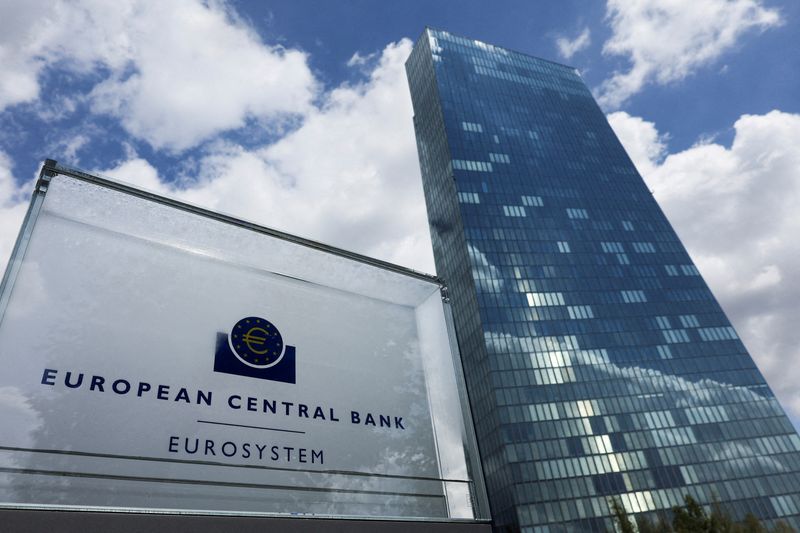By Scott Kanowsky
Investing.com -- The European Central Bank raised interest rates by another 50 basis points on Thursday, as policymakers remain focused on corralling elevated inflation despite recent data suggesting that prices may be peaking in the Eurozone.
ECB president Christine Lagarde has said that the central bank will "stay the course" on its current monetary policy tightening cycle, adding that inflation is still "way too high."
Economic readings this week have helped to somewhat mollify these concerns. Price growth in the Eurozone slowed by more than expected in January, according to figures from the European Union's statistics agency, as a mild winter supported an easing in monthly energy cost increases.
The bloc's economy has also proved broadly resilient to the pressures brought on by the higher borrowing costs. The Eurozone unexpectedly grew in the fourth quarter, defying expectations that the ECB's aggressive rate hikes in 2022 would spark a deep recession in the near term.
But quarter-on-quarter growth in the final three months of 2022 was only a slight 0.1%, while the headline inflation reading of 8.5% last month is still well above the ECB's stated 2% target. Meanwhile, a technical problem at Germany's statistics office meant that the currency area's January consumer price index did not include official preliminary data from its biggest economy.
ECB members will have a chance to parse through further inflation numbers before they make their next policy decision in March, with officials keen to learn more about how much price growth is decelerating. The ECB's own policy guidance in December predicted that another 50 basis point hike would "possibly" be necessary at that meeting next month, but media reports have suggested that support around a smaller rate rise could be starting to gain traction.
Investors will be on the lookout for comments about the March meeting when Lagarde holds a press conference later on Thursday. She has previously claimed that decisions are taken on a meeting-by-meeting basis.
Analysts have predicted that the ECB will eventually raise rates to somewhere between 3.25% to 3.75%.
The move from the ECB comes after the Federal Reserve pumped the brakes on a period of unprecedented policy tightening on Wednesday, raising borrowing costs by a more modest 25 basis points. But Fed chair Jerome Powell flagged that "ongoing increases" would be required to help control inflation.
